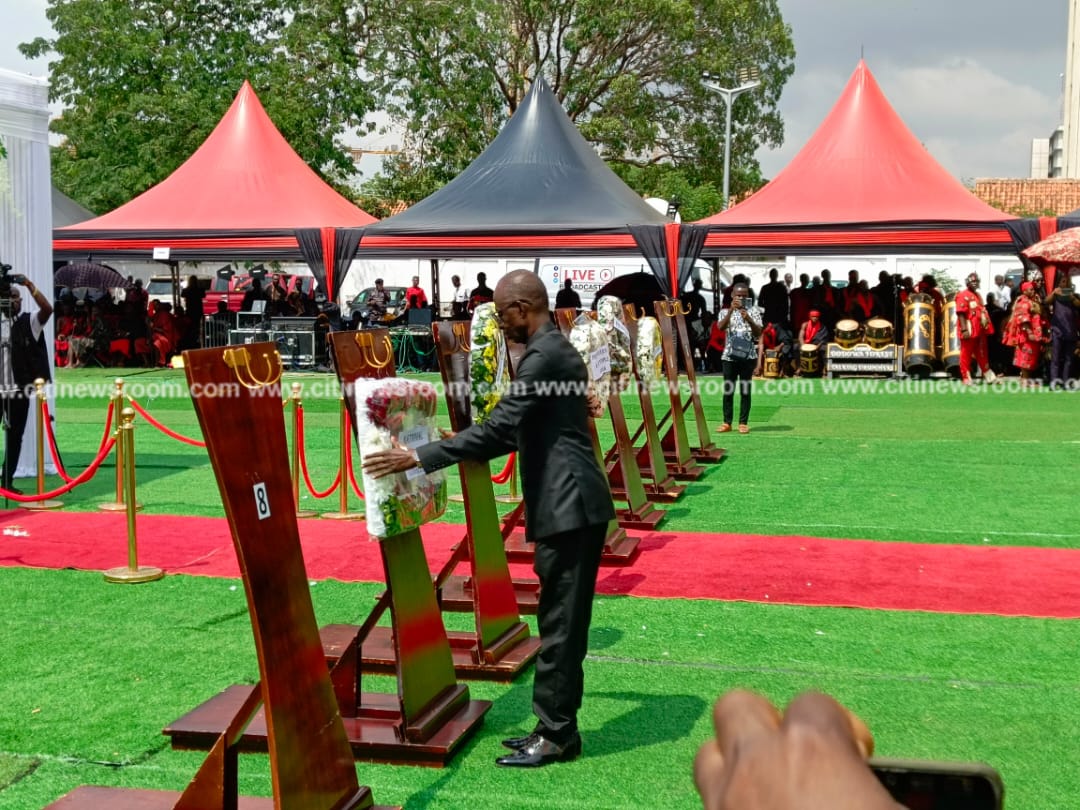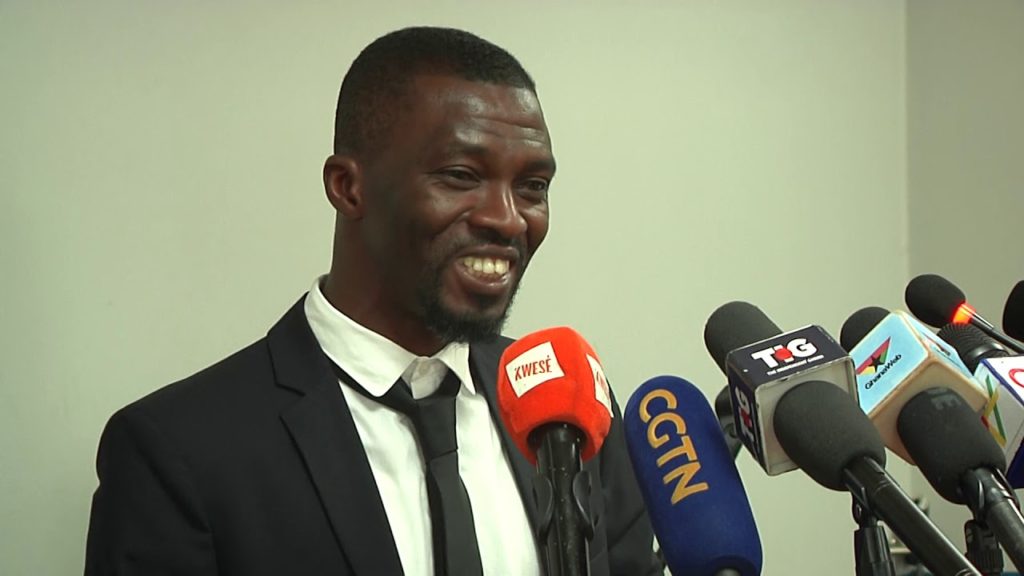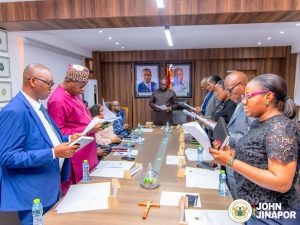
I once sat quietly at the back of a hall, watching yet another launch by a very popular public institution, like one I have had the privilege to work with. There were colourful banners, the echo of an applause plus promises of transformation.
It was the kind of an event that ticks all the Public Relations (PR) boxes that I was taught in class and even in practice: media presence, official speeches, photo opportunities and carefully choreographed branding.
But, something about it felt too loud. Loud, not in sound, but in energy. It was as though the ‘volume’ of the performance was trying to distract from the absence of substance. Instantly, my thoughts trailed back on the favourite catchphrase “Empty barrels make the most noise” and “He who pays the piper calls the tune.”
As a communications professional, I have lived in the “tension” between these two ideas over the years of practice.I have learned that these dictum are not contradictory. They rather, are one of the same “coin” we mint everyday in the PR world.
The Weight of Noise Without Substance
“Empty barrels make the most noise” is a quiet warning to our profession. We’ve all seen it. Sometimes, we even take part in it. Sadly, PR that’s polished, amplified and beautifully- packaged is but, hollow.
Think about well-branded campaigns with bold slogans and ambitious declarations by the respected Companies in Ghana, but, little follow-through.
Think about the sometimes copious press releases full of buzzwords but lacking the “heart”. Think also about the political party events we hype up with no systems in place to measure or sustain the promise being made. Indeed, these practices keep reminding us that noise is not always impact. Clearly, in PR, when the noise overshadows the truth, credibility becomes the sacrificial lamb.
Who Pays, Often Directs. But, Shouldn’t Always Dictate
The second saying: “He who pays the piper calls the tune is another simple truth we cannot ignore. Our client, sponsor, or leader often dictate the direction of every campaign. They fund the message, and they expect that message to echo their priorities. That’s totally understandable and sometimes, very necessary.
However, this is where our job becomes more than just an amplification. Our responsibility as professionals, is to ensure the “tune being played” is not only what the client wants to hear, but also what the public needs to understand. It’s our job to shape, not just repeat. It is our burden to refine, not just obey.
I recall moments in the line of duty, one day, when I had to gently push back on a message that sounded good on paper but lacked any foundation in terms with the realities on the ground. This was not to challenge authority, but to protect, safeguard everybody’s integrity.
Remember, when we, as PR professionals, allow ourselves to be used merely as loudspeakers for power, we abandon our higher purpose; to connect people to the truth.
Admittedly, these moments with “the truth” are, in most cases, difficult and unpleasant because of the egos that come into play. You hear, ‘I am the Boss’ to ‘You think you know better than Me”.
You will understand the above scenario if you have ever worked in an environment where one particular group of professionals are seen as first class employees. They always know better than you the Professional.But, they create the mess that can only be cleaned by the PR person.
Not Loud, But Intentional
Not long ago, someone who has played an influential role in my life introduced me to one of his “very important friends” — a man I had seen and greeted on several occasions, but with whom I had never truly connected. This time, however, the introduction was formal: “He’s a Communications Professional,” my mentor said.
Almost immediately, the gentleman chuckled and asked, half-seriously, “You? A PR person? Why are you so quiet? Aren’t PR people supposed to be all over the place, making noise and being the face of everything?”
I smiled, choosing my words carefully. I knew this was a rare moment to leave an impression. “The best PR professionals,” I replied, “don’t need to shout. The messages speak for them.”
Truly, my response wasn’t rehearsed; it came from years of watching the difference between being seen or loud and being effective. Some of the most impactful PR strategies I’ve been part of were quiet, deliberate,
deeply rooted in insight and understanding. They didn’t trend for a day; they stayed with people. That’s it!
Our profession is not a contest about visibility; it’s a craft and the science of substance, relevance. Anyone can make a splash; however, not everybody can move minds or shift narratives. In our world, today, where everybody is talking, sometimes, the quietest voice, grounded in the truth, echoes the loudest. There will be no need for rejoinders when the “deception” in the earlier message is exposed.
Holding the Two Sayings Together
When we blend the wisdom of those two sayings discussed above, we arrive at the essence of ethical, effective PR – Remember, don’t be loud without reason, and don’t follow without thinking.
Yes, the client may call the tune. But, it is our responsibility to refine that tune until it resonates, not just with the paymaster, but, with the target audience or public(s). We must not confuse volume with value nor hide behind the excuse that “ I am just doing my job, and that “yessa massa no spoil work”. We should know better.
“Speaking to Power” agenda in Public Relations emphasises the importance of communication that addresses issues of power dynamics within organizations and society. This involves practitioners actively
engaging in conversations that matter, amplifying marginalized voices, and connecting purpose with performance to foster trust and understanding. It is about more than just managing reputations; it” about driving positive change through strategic communication.
Here are some important principles:
One, purpose-driven communication ensures that PR professionals prioritise communication that aligns with ethical values and contributes to a more just and equitable world.
Two, PR must seek to amplify the marginalized voices, seeking to actively elevate the perspectives of those who are often unheard is crucial for creating a more inclusive and representative narrative.
Three, PR Professionals must connecting purpose with performance, demonstrating how organisational actions align with stated values and contribute to positive societal impact is essential for building trust and credibility.
Building trusted relationships and developing strong rapport with decision-makers and stakeholders could also increase the likelihood of your message being heard and acted upon.
Further, strategic and assertive communication must articulate concerns and advocate change while maintaining respect and professionalism is vital for effective communication.
Importantly, PR strategies seek to provide alternatives and the strict recommendations. We need to offer decision-makers a wide range of evidence-backed alternatives backed by documentary advice on the recommendations and their outcomes to ensure accountability.
We need to also dwell on issues and not the personal, focusing on the problem at hand, avoiding personal attacks or being on the defensive rope.
Undoubtedly, our discussions in the piece demonstrate that, in this age and veritable the arena of distrust and polarisation and the “tribalism of thought”, PR professionals have a critical and crucial role to play in understanding the ethics of the profession, fostering unity and making the impact on the publics and society.
“Speaking to Power” is one portent skill in PR to help organisations , the publics and society face the myriads of maintaining trust, and creating a more positive future for all stakeholders.
A Final Reflection
As PR professionals, when are work is done well, it becomes invisible and powerful. Happily, it’s the steady hand that shapes understanding; it’s the quiet architect of public trust. We don’t always need the applause.
Our work must be tempered with authenticity, restraint, and wisdom.
Remember that – the next time people wonder why a PR person isn’t the loudest in the room, know that, they might be asking the wrong question. The real measure is not who is loudest, but whose message stays long after the noise fades…
PR , in this country, I suggest, is turned into an arena of showmanship and “godfatherism”
Benjamin Quarcoo is a communications expert with over 10 years’ experience in Ghana’s energy and education sectors. He values clear, honest, and purposeful communication. He has been a Chartered
Member of CIPR-UK since 2022
By Benjamin Quarcoo
Read Full Story













Facebook
Twitter
Pinterest
Instagram
Google+
YouTube
LinkedIn
RSS